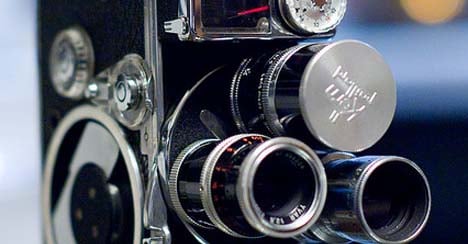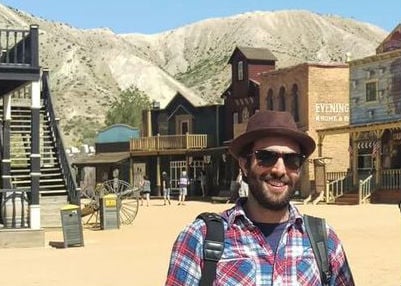"I had always said I'd love to make our own films here in France," Besson told an opening ceremony under the glass and steel vaults of the 1930s plant, a giant turbine brightly painted by local street artists towering in its centre.
"Whereas Americans say 'Yes We Can', here in France our motto tends to be 'Dream On!'. Pessimism is something of a national sport."
"So I thank you from the bottom of my heart for believing in this dream," the 53-year-old director and producer told the gathering of French politicians, film executives and project partners.
The €170 million "Cite du Cinema", a project 12 years in the making, aims to plug a gap in the French production landscape, as a studio able to see a movie project through from A to Z, just next to the world's most filmed city.
As well as nine film sets, totalling 9,500 square metres, it houses a vast office complex including EuropaCorp's new headquarters, carpentry, costume and model-making workshops, production and post-production facilities.
"France has Europe's biggest film industry and yet until now it was the only European country without the infrastructure to produce a film," said Christophe Lambert, general director of Besson's production firm EuropaCorp.
Back in 1997, Besson had to spend 18 months in Britain to shoot his sci-fi blockbuster "The Fifth Element".
"I went with a heavy heart," recalled the director.
So in 2000, the filmmaker set out to create a studio complex that would make it possible to create a film in France from A to Z.
For the site he chose an Art Deco-style former thermal power plant in Saint Denis, a working class north Paris suburb, which he had used to shoot scenes from two hitman dramas, the 1990 "Nikita" and the 1994 "The Professional".
Besson started filming there again this summer for his new movie "Malavita" a Mafia drama starring Robert De Niro and Michelle Pfeiffer, who were expected for a private inauguration dinner Friday night with the likes of Jean Dujardin.
And for everybody else, the site is being thrown open Saturday for a one-off tour of what is being dubbed "Hollywood on Seine".
At the opening, Besson recalled how as a teenager, he would slip unnoticed into the old studios at Boulogne near Paris, and how later he was blown away by a visit to Universal Studios in California.
"I have always loved film studios," he said. "A film set is like the operating theatre for a surgeon, or the kitchen for a chef."
The Cite du Cinema also hosts the Louis Lumiere National film school, as well as a second film school, created by Besson to offer screenwriting and directing courses, free of charge, to some 60 youths with no prior qualifications.
"The students will rub shoulders with Hollywood stars at the cafeteria," joked Lambert.
Besson's production firm EuropaCorp purchased the site in 2006, but the project nearly ground to a halt the following year for lack of funds.
The full financing came together in 2008, with Nef-Lumiere, owned by France's Caisse des Depots and the Vinci conglomerate, acquiring the office complex, and a conglomerate of investors including EuropaCorp financing the studio complex.
The Cite du Cinema aims to rival British studios like Pinewood or Shepperton, as well as rising competition from lower-cost eastern European locations like Bulgaria. Its backers argue that its proximity to Paris more than compensates for its lack of a backlot, or outdoor shooting area.
It aims to capture big budget French projects, two thirds of which were shot outside the country in the first semester of 2012, as well as foreign films.
"This is good news for the profession," commented Franck Priot, deputy head of the French film commission, FilmFrance, whose job it is to attract foreign film shoots to the country.
EuropaCorp says it is fielding quote requests from top French and US producers and predicts the studio will be fully booked within a year.
According to one estimate, it needs to attract two major productions per year to cover its operating costs.




 Please whitelist us to continue reading.
Please whitelist us to continue reading.
Member comments